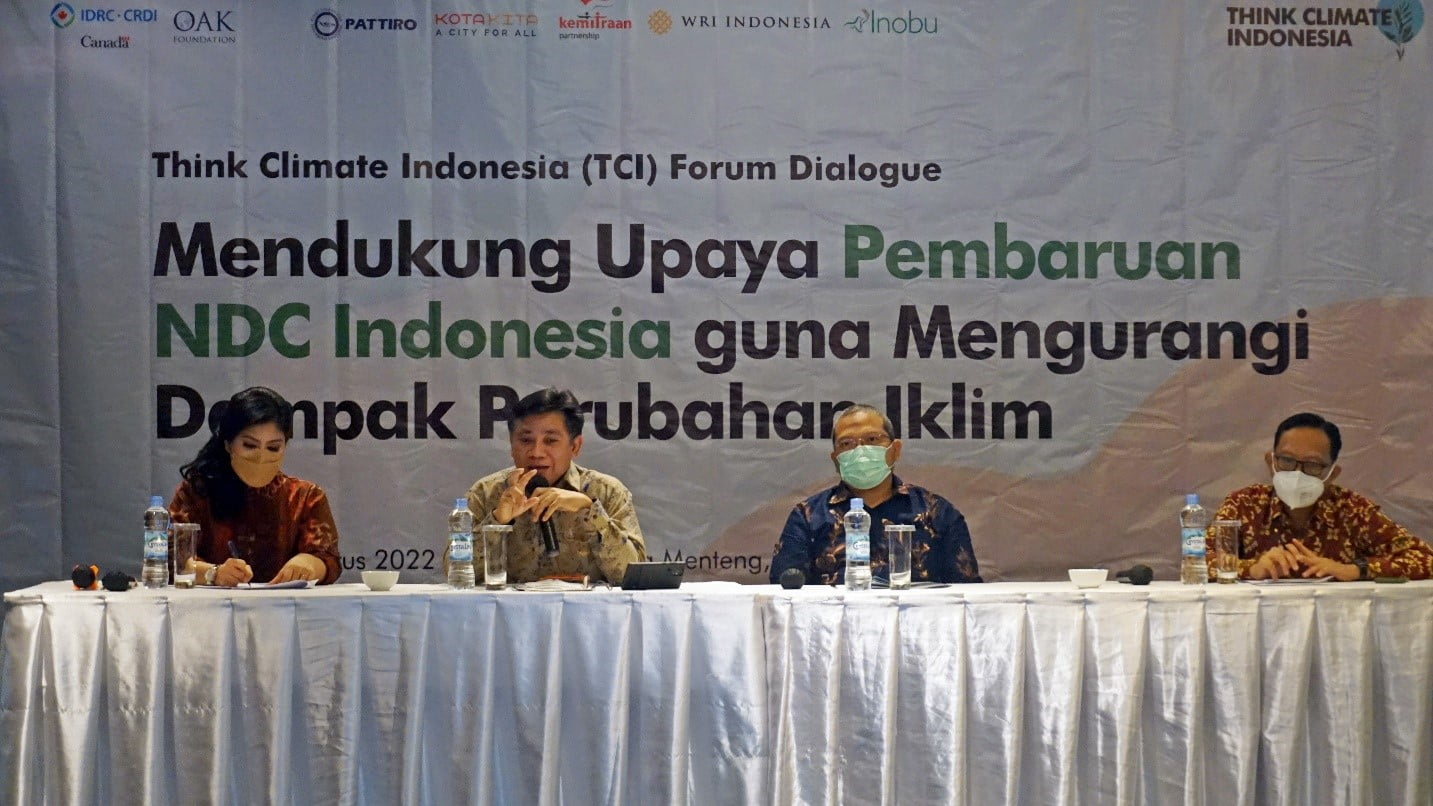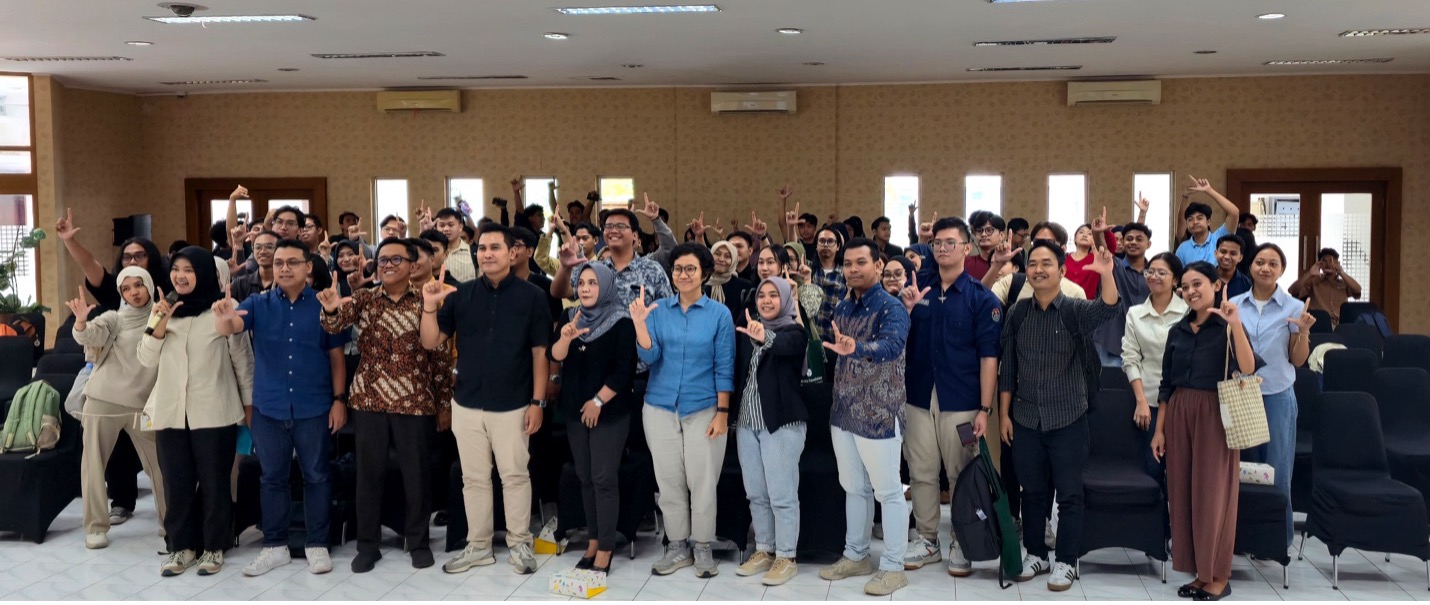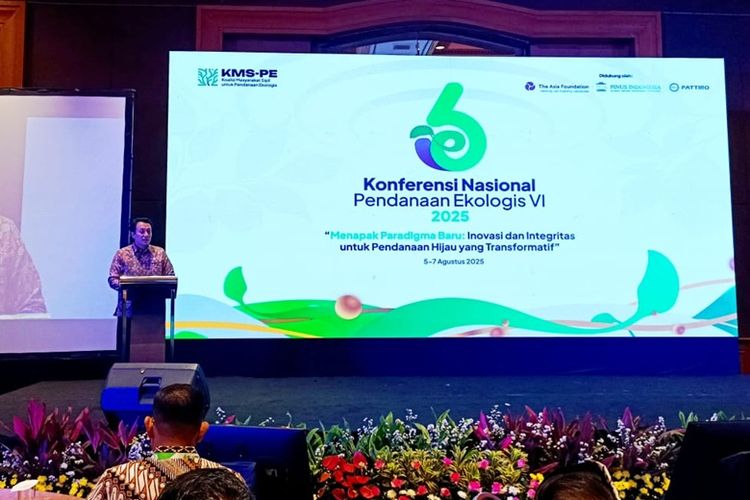
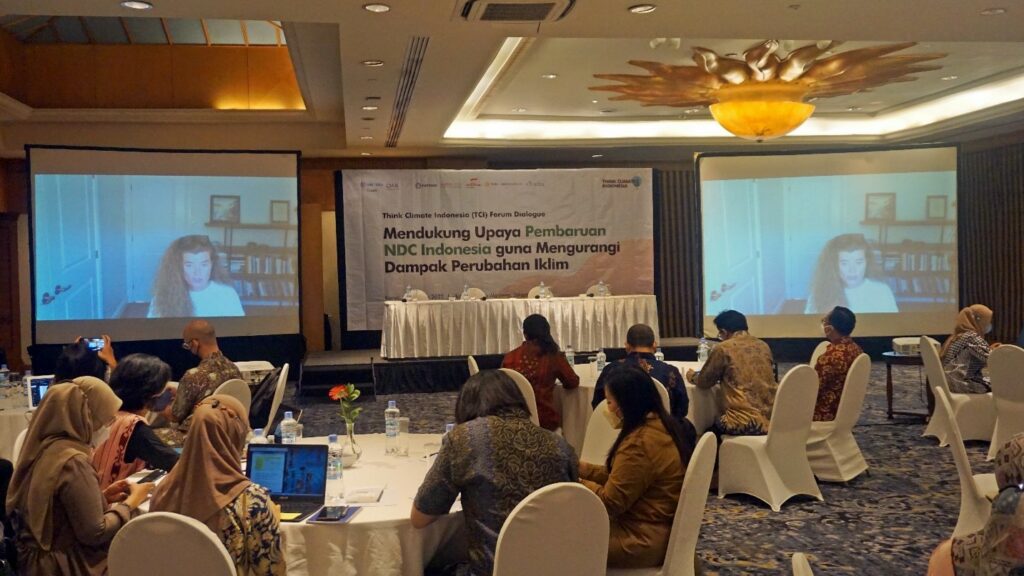
JAKARTA. 2022, 25 August – The commitment of Indonesia to keep the earth’s temperature rise below 1.5 degrees Celsius was agreed upon in the Paris Agreement in 2015. The Nationally Determined Contribution (NDC) document was established that year as an official agreement in our country’s emission reduction efforts submitted to the United Nations Framework Convention on Climate Change (UNFCC). By July 2021, Indonesia updated its NDC document. The hope is that this NDC update can contribute to a climate-resilient future.
In this regard, Think Climate Indonesia (TCI) initiated the TCI Forum Dialogue entitled “Supporting Indonesia’s NDC Update Efforts to Reduce Climate Change Impacts” which aims to open a space for dialogue regarding the strategies that will be undertaken by the central government in implementing its Sustainable Development commitments. In particular, the forum also seeks to dissect the best practices and challenges that are often faced in efforts to implement NDCs to reduce carbon emissions in Indonesia from the perspectives of local governments, think tanks, and civil society organizations. In her explanation of the TCI Forum, Vanesha Manuturi representing TCI Partners said that the spirit of TCI is to foster coalitions of change, promote cross-sector collaboration and encourage real and effective climate action in Indonesia.
“TCI Forum is a shared discussion space that builds on the knowledge, expertise, and findings of five TCI partner institutions to promote cross-sector collaboration in climate action and encourage real and effective climate action in Indonesia,” she said.
The hybrid event on Wednesday (25/8) presented the Central Government represented by BAPPENAS, Local Government, Researchers, Think Tank Institutions, and civil society groups as resource persons. The participants who attended offline came from the ranks of the Government, non-governmental organizations, civil society organizations, and media crews.
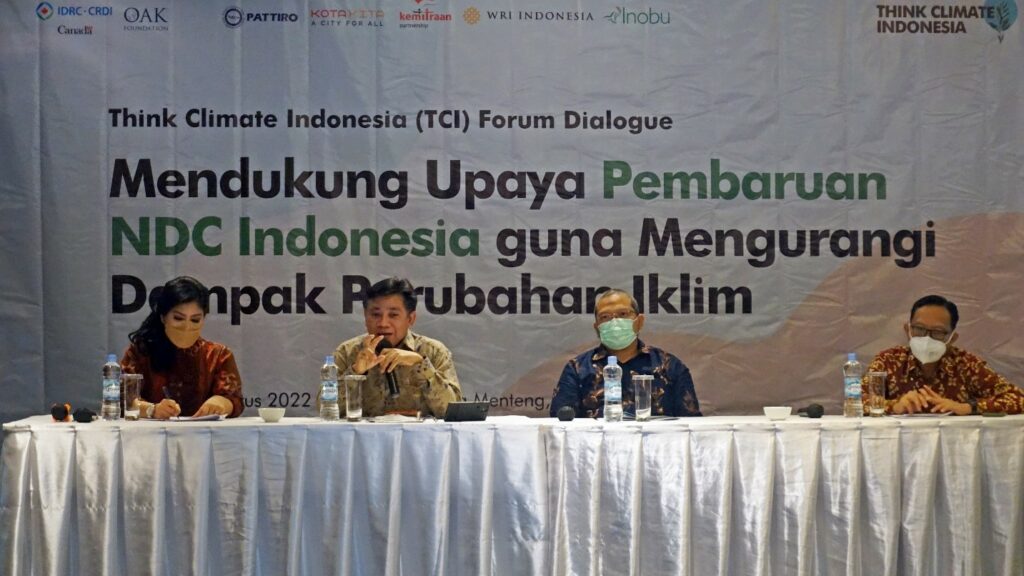
Researcher from the National Research and Innovation Agency, I Wayan Susi Dharmawan, said that the development of research and innovation in responding to environmentally-oriented development should not only stop at the end result. Implementation of the research results needs to be developed in a way that provides tangible results in the community.
“What is needed now is climate change research that can encourage action with high applicability, efficiency and effectiveness as well as considering the socio-cultural acceptability of the community and compatibility with national policies and regulations,” said Wayan.
PATTIRO Executive Director, Bejo Untung, responded to this in his presentation. According to Bejo, the role of think tanks in accelerating sustainable development is as a “connector of tongues” between the policy sector, research, and practice in society.
“What must be encouraged is how institutions can take action at the micro level so that climate change issues that have been determined can be easily understood by the community,” said Bejo.
The government has been working on the direction of Indonesia’s development towards carbon emission reduction targets and climate resilience. Medrilzam, Director of Environment at the Ministry of National Development Planning/BAPPENAS, said that low-carbon and climate-resilient development is the backbone of Indonesia’s economic transformation towards a green economy.
“The issue of climate change is not only an environmental issue, but also a development issue. Therefore, the green economy is the key to the current development transformation,” said Medrilzam.
Lessons Learned and Best Practices on Climate Change Action to Reduce Greenhouse Gas Emissions
In conducting good practices to pursue a development which takes into account carbon emission reduction and climate resilience, the East Kalimantan Governor’s Special Staff for Environment and Climate Change, Stepi Hakim, explained that the East Kalimantan Provincial Government has compiled and declared an Emission Reduction Strategic Document. This is realized in the issuance of Regulations and Policies on Climate Change Adaptation & Mitigation in the East Kalimantan Region 2009-2021. He also added that reducing greenhouse gas (GHG) emissions is a target in the 2019-2023 East Kalimantan RPJMD.
Meanwhile, Environmental Lawyer and Chairman of the Board of Inobu Foundation, Bernadinus Steni, explained that multi-stakeholder cooperation and collaboration are needed in achieving the success of interventions, including regulations and policies that support regulatory interventions. He also added that socialization, mentoring, and training activities are important factors in efforts to increase community participation and commitment, in order to achieve emission reduction and climate resilience.
A member of the Mekar Bakti Forest Farmers Group, Balikpapan, Suin Handayani, added that the problems faced by farmer groups in her area are difficulties in obtaining subsidized fertilizers, access to marketing of farm and processed products, and the capacity of women farmers in business development. According to the woman who manages the Sungai Wain Community Forest (HKm), through this forum it is hoped that voices at the site level can be accommodated by the government.
Contact Person:
Jihan Dzahabiyyah (jihan@pattiro.org)
Vanesha Manuturi (vanesha@kotakita.org)
****
Overview of Think Climate Indonesia (TCI) Forum
Think Climate Indonesia (TCI) is a collaborative initiative of five think tanks to promote real and effective climate action. TCI comprises Inobu Foundation, World Resources Institute (WRI) Indonesia, KEMITRAAN (Partnership for Governance Reform), Center for Regional Information and Studies (PATTIRO), and Yayasan Kota Kita. The initiative is supported by the International Development Research Center (IDRC) and the Oak Foundation for the period 2020 – 2023. TCI Forum is built to engage more parties to participate in realizing a climate resilient future.
TCI Forum builds on the knowledge, expertise, and findings of five Think Climate Indonesia initiative partner organizations namely Inobu Foundation, World Resources Institute (WRI) Indonesia, KEMITRAAN (Partnership for Governance Reform), Pusat Telaah dan Informasi Regional (PATTIRO), and Yayasan Kota Kita. As a community of practice, TCI Forum is committed to promoting cross-sector collaboration in climate action by sharing new insights and knowledge through newsletters and content creation, and supporting public and open spaces for shared learning in the form of networking sessions and discussions through TCI Forum Dialogue activities.

